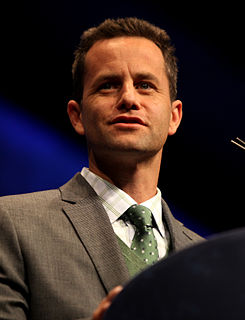A Quote by Brennan Manning
False gods - the gods of human understanding - despise sinners, but the Father of Jesus loves all, no matter what they do. But of course this is almost too incredible for us to accept.
Related Quotes
Justification by grace through faith' is the theologian's learned phrase for what Chesterton once called 'the furious love of G-d.' He is not moody or capricious; He knows no seasons of change. He has a single relentless stance toward us: He loves us. He is the only G-d man has ever heard of who loves sinners. False gods- the gods of human manufacturing- despise sinners, but the Father of (Yeshua) loves all, no matter what they do.
We may give our human loves the unconditional allegiance which we owe only to God. They they become gods: then they become demons. Then they will destroy us, and also destroy themselves. For natural loves that are allowed to become gods do not remain loves. They are still called so, but can become in fact complicated forms of hatred.
Sadly enough, my young friends, it is a characteristic of our age that if people want any gods at all, they want them to be gods who do not demand much, comfortable gods, smooth gods who not only don't rock the boat but don't even row it, gods who pat us on the head, make us giggle, then tell us to run along and pick marigolds.
It is useless saying that we do not accept the gods of the primitive world. In form, no; in essence, yes. The fact before us is that all ideas of gods can be traced to the earliest stages of human history.... There is an unbroken line of descent linking the gods of the most primitive peoples to those of modern man. We reject the world of the savage; but we still, in our churches, mosques, synagogues and temples, perpetuate the theories he built upon that world.
An irreligious man is not one who denies the gods of the majority, but one who applies to the gods the opinions of the majority. For what most men say about the gods are not ideas derived from sensation, but false opinions, according to which the greatest evils come to the wicked, and the greatest blessings come to the good from the gods.
There are new gods growing in America, clinging to growing knots of belief: gods of credit card and freeway, of Internet and telephone, of radio and hospital and television, gods of plastic and of beeper and of neon. Proud gods, fat and foolish creatures, puffed up with their own newness and importance. "They are aware of us, they fear us, and they hate us," said Odin. "You are fooling yourselves if you believe otherwise.
The gods have fled, I know. My sense is the gods have always been essentially absent. I do not believe human beings have played games or sports from the beginning merely to summon or to please or to appease the gods. If anthropologists and historians believe that, it is because they believe whatever they have been able to recover about what humankind told the gods humankind was doing. I believe we have played games, and watched games, to imitate the gods, to become godlike in our worship of eachother and, through those moments of transmutation, to know for an instant what the gods know.
Since it is possible that thou mayest depart from life this very moment, regulate every act and thought accordingly. But to go away from among men, if there are gods, is not a thing to be afraid of, for the gods will not involve thee in evil; but if indeed they do not exist, or if they have no concern about human affairs, what is it to me to live in a universe devoid of gods or devoid of Providence? But Gods there are, undoubtedly, and they regard human affairs; and have put it wholly in our power, that we should not fall into what is truly evil.

































